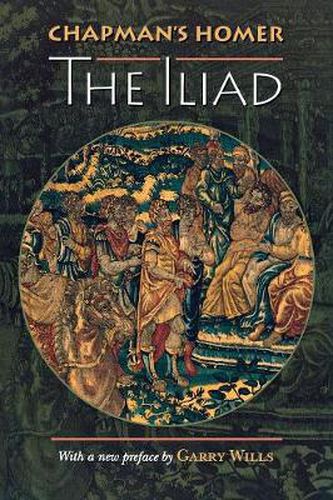Readings Newsletter
Become a Readings Member to make your shopping experience even easier.
Sign in or sign up for free!
You’re not far away from qualifying for FREE standard shipping within Australia
You’ve qualified for FREE standard shipping within Australia
The cart is loading…






George Chapman’s translations of Homer are the most famous in the English language. Keats immortalized the work of the Renaissance dramatist and poet in the sonnet On First Looking into Chapman’s Homer. Swinburne praised the translations for their romantic and sometimes barbaric grandeur, their freshness, strength, and inextinguishable fire. The great critic George Saintsbury (1845-1933) wrote: For more than two centuries they were the resort of all who, unable to read Greek, wished to know what Greek was. Chapman is far nearer Homer than any modern translator in any modern language. This volume presents the original (1611) text of Chapman’s translation of the Iliad , making only a small number of modifications to punctuation and wording where they might confuse the modern reader. The editor, Allardyce Nicoll, provides an introduction and a glossary. Garry Wills contributes a preface, in which he explains how Chapman tapped into the poetic consonance between the semi-divine heroism of the Iliad’s warriors and the cosmological symbols of Renaissance humanism.
$9.00 standard shipping within Australia
FREE standard shipping within Australia for orders over $100.00
Express & International shipping calculated at checkout
George Chapman’s translations of Homer are the most famous in the English language. Keats immortalized the work of the Renaissance dramatist and poet in the sonnet On First Looking into Chapman’s Homer. Swinburne praised the translations for their romantic and sometimes barbaric grandeur, their freshness, strength, and inextinguishable fire. The great critic George Saintsbury (1845-1933) wrote: For more than two centuries they were the resort of all who, unable to read Greek, wished to know what Greek was. Chapman is far nearer Homer than any modern translator in any modern language. This volume presents the original (1611) text of Chapman’s translation of the Iliad , making only a small number of modifications to punctuation and wording where they might confuse the modern reader. The editor, Allardyce Nicoll, provides an introduction and a glossary. Garry Wills contributes a preface, in which he explains how Chapman tapped into the poetic consonance between the semi-divine heroism of the Iliad’s warriors and the cosmological symbols of Renaissance humanism.